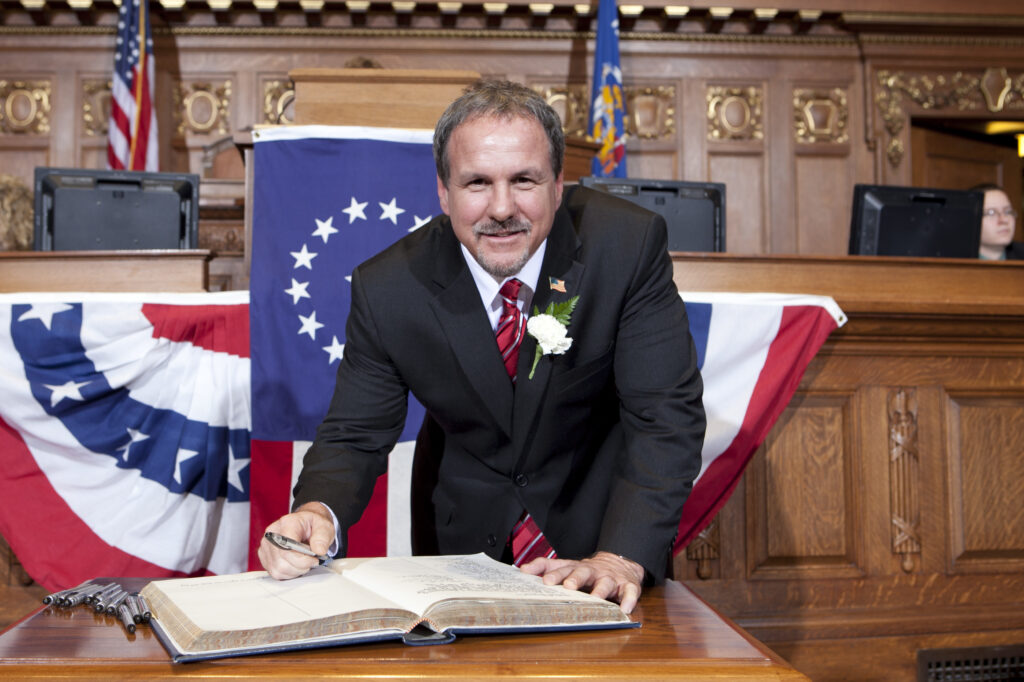Editor’s Note: Wisconsin state Rep. Mike Kuglitsch (R-New Berlin) is serving his third term in the Wisconsin State Legislature. Among his other committee assignments, Kuglitsch chairs the Energy and Utilities Committee.
Burnett: You recently attended The Heartland Institute’s Tenth International Conference on Climate Change (ICCC-10), why did you attend and what were your impressions?
Kuglitsch: I believe it is the duty of elected officials to understand all sides of an issue and perform the due diligence required to make informed decisions. I pledged to my constituents that I will ask tough questions and seek out the information required as their state representative, thus I felt it was necessary to attend ICCC-10.
My intuition led me to believe climate change was derived from a misguided belief of “global warming” perpetuated from the Left and environmental activists. I attended this year’s conference to establish whether my beliefs were correct. My desire to attain the truth and [accurate] data on this issue was answered.
The conference helped me determine the truth regarding climate change. My assumption the [Intergovernmental Panel on Climate Change’s] work is junk science was verified. I would recommend this conference to any legislator with an open mind and curiosity on this important topic. Moving forward, my hope is legislative colleagues across the country [will] take the time to learn the truth on this issue, an issue that will shape many policies for our states and our country in the near future.
Burnett: Wisconsin is the center of frac sand mining in this country. What are your thoughts on the industry and its importance to America’s fracking-induced energy renaissance?
Kuglitsch: Wisconsin’s abundance of silica sand used in the fracking industry has led to thousands of jobs created within Wisconsin’s borders and has helped our country move to the forefront of natural gas and oil production.
Currently, there are about 120 sand mines in operation, primarily in western Wisconsin. We must continue to take advantage of the natural resources our state has been gifted. Over the past two sessions, the Wisconsin State Legislature has continually tried to set up state standards to ensure sand mines cannot be closed due to local zoning changes or burdensome regulatory costs.
We have seen oil and natural gas prices drop significantly and we can [attribute] that to our growing fracking industry in America. I hope to see this production grow over the years and continue to move our country towards energy independence.
Burnett: What other environmental issues are you tracking?
Kuglitsch: EPA’s forthcoming Clean Power Plan could harm Wisconsin’s residential and industrial ratepayers. Wisconsin held a joint House-Senate informational hearing to establish the pros and cons of the CPP. Our Public Service Commission reported this new rule could cost Wisconsin somewhere between $3.3 billion and $13.4 billion, and nearly 21,000 jobs could be lost.
Many energy issues state legislators face result from federal government mandates. The outright assault and overreach by our president and the Environmental Protection Agency make it difficult for states such as Wisconsin to succeed and be incubators for our country’s innovation.
H. Sterling Burnett, Ph.D. ([email protected]) is a research fellow with The Heartland Institute.





